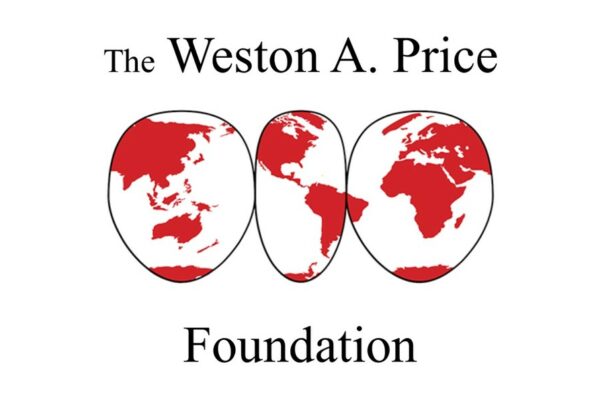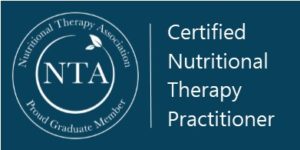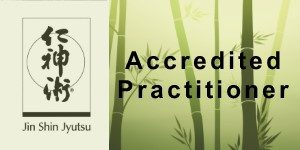This is Part 4 of a 6-Part guest post series on Emotional Anatomy by Steven Horne.
I first met Steven at the LDS Holistic Living Conference where he was teaching a class on herbal remedies. His class was completely full and after hearing him teach I understood why. I recently participated in a free preview of Steven’s Emotional Anatomy webinar and following the webinar contacted Steven to see if he would be willing to submit a guest post on the topic of Emotional Anatomy. I am grateful and humbled that he accepted.
Steven is offering the complete, seven-session Emotional Anatomy Webinar for only $127. The complete webinar goes into greater detail about the various types of emotional wounds and tools you can use to help people heal from them. On his Tree of Light Publishing website, you’ll also find a free preview class that explains the entire emotional map he uses and his technique for healing emotional wounds. I hope you enjoy the following Emotional Anatomy – The Heart World by Steven Horne.
 In my previous post, I discussed the lowest of the three “worlds” of our being, the physical world of our abdomen or guts. In this post, I move upward to the middle world, the world of our heart. This is the area of our chest cavity, which houses our heart, lungs, and thymus gland. This is the world of our emotions and social relations and is also linked into our spiritual nature.
In my previous post, I discussed the lowest of the three “worlds” of our being, the physical world of our abdomen or guts. In this post, I move upward to the middle world, the world of our heart. This is the area of our chest cavity, which houses our heart, lungs, and thymus gland. This is the world of our emotions and social relations and is also linked into our spiritual nature.
As with the abdominal area, there are four energy centers in this world as follows:
7 – Solar Plexus Energy – located just under the sternum at the solar plexus
6 – Thymus Energy – located on the right side of the chest, just above the right breast
5 – Heart Energy – located on the left side of the chest, just above the left breast
4 – Throat Energy – located at the base of the neck, over the voice box and thyroid gland
The location of each of these four energy centers is depicted in the diagram. Again, a weakness in the energy in any of these areas will be related to unresolved emotional “wounds” in that part of our being. These wounds will manifest in our personality and may also make us prone to certain physical health problems. Here’s an explanation of each energy center, what it means, and some tools you can use to promote healing in that center.
Solar Plexus Energy
The Solar Plexus is the body’s center of gravity. In other words, it sits literally at the center of our body mass. It is the point of balance or equilibrium. On the tree of life model, which helped me gain this understanding, it is represented by the number seven and is the place where the body, mind, and spirit come together in perfect harmony and balance.
The solar plexus energy is connected to the adrenal glands, the glands of adaptation that help us cope with stress. Adaptogens are herbs that regulate the adrenal glands and have far reaching benefits in enhancing stamina, energy, mental clarity, and overall health. Examples of adaptogens are eleuthero root rhodiloa, schizandra, ashawaganda, and American and Korean ginseng.
When the solar plexus energy is strong we are centered. We are able to act on our environment and not simply react to what is happening in our life. In contrast, when the solar plexus energy is weak, a person is easily scattered. They can run to and fro “putting out fires” in their life and feel like their life is “out of control.” They may also be plagued by fear and worry, unable to find inner peace or stay calm amid the problems of life.
Physically, a weakness at the solar plexus will manifest as a hiatal hernia, where the stomach slides upward into the diaphragm. This inhibits breathing and digestion and can even adversely affect the heart, causing problems like palpitations. The hiatal hernia creates problems with digesting proteins and absorbing minerals, which weakens the structural integrity of the entire body. For more information on this problem read my article and watch my videos on The School of Modern Herbal Medicine website.
Besides correcting the hiatal hernia and using adaptogenic herbs, there are several flower essences that can help. Dandelion is one of my favorites, which helps people learn to relax and go with the flow. Dill is another, which is for people whose energy is easily scattered. Other flower essences for this area are those that help a person deal with fear and indecision such as mimulus, aspen, and sclerantus. Practicing deep breathing and meditation is also helpful for strengthening the solar plexus energy.
Thymus Energy
The thymus energy is the yang or masculine side of the heart world, just as the liver is the yang side of the abdominal world. While the liver energy helps protect us physically, be enabling us to fight to defend ourselves, the thymus energy helps us protect ourselves emotionally and socially. It allows us to exercise good judgment, understand appropriate and inappropriate social behavior and set emotional boundaries with other people.
The thymus gland sits over the heart, and can be thought of as the “heart protector” in Chinese medicine. It is the gland that regulates the immune system and houses our sense of self and not-self. This is the essence of immunity, which allows us to separate what belongs in the body from what does not belong in the body. Emotionally, this sense of self, not-self is connected to our self-identity or self-esteem, which is expressed by what we put after the words, “I am…”
In fact, when we say “me,” we point directly to the thymus gland and when we say “you,” we point to the other person’s thymus gland. This demonstrates that this is where we house our sense of who we are.
The “to be” verb, in all it’s various forms, is the most dangerous verb in our language. What we put after the words, “I am,” “You are,” and “He or she is” tend to become self-fulfilling prophecies. That is, when I tell my child, “You ARE a naughty boy,” and the child internalizes that judgement, “I AM a naughty boy,” do we wonder that the child acts out according to this programming?
Remember that God told Moses, “I am that I am,” suggesting that the “I am” is divine and we should NEVER put anything negative after those words. The same is true for “You are” and “He or she is.” That’s why the statement, “I am a child of God,” is so powerful, because if I truly absorb that into my sense of self, I will act accordingly. Instead of labeling the person, we need to label the behavior, as in “that is a bad thing to do.” This separates the person from the behavior and is the very basis of our ability to repent and change.
Damage to the thymus energy makes us believe that something is innately wrong with us, which precludes our ability to feel good about ourselves and thus act accordingly. Physically, this manifests as immune issues, such as catching infections easily, or developing problems such as auto-immune disorders (an attack against the self) or cancer (the inability to defend oneself).
One might suppose that a person with a thymus energy weakness would be self-effacing and overly humble. While being self-effacing (which is not the same as humility) is one sign of a thymus weakness, so is boasting and self-righteousness, which often reflect a persons attempt to make themselves feel good about who they really are, when inside they are unable to feel good about themselves.
Hugs, which press “thymus to thymus” build this energy and enhance immunity and a genuine sense of self-worth. So do “pats on the back” which are also striking this same energy center. The Tarzan-like thumping of the thymus also enhances this energy.
Two of my favorite flower essences for this area are sunflower, which is for people who alternately boast and belittle themselves, and buttercup, which is for learning to let my “little light shine.” Echinacea, an herb famous for its ability to stimulate the immune system, works as a flower essence to rebuild a sense of self-worth in people who have been traumatized or abused. Garlic, mountain pride, and penstamon are other flower essences I use to help heal this energy. Ultimately, however, the most important thing you can do is to be careful of what you put after the “to be” verb, because what you judge yourself and other to be, will be.
Heart Energy
The heart is the yin or feminine side of the emotional world. It is the receptive, open side. Just as the pancreas allows us to let in pleasure on a physical level, the heart allows us to experience pleasure or happiness on an emotional level. The heart is not just a mechanical “pump” pushing blood around our body. It is loaded with nerve cells and is the emotional “brain.” It can not only process information or “think” independently of our brain, it is also an electromagnetic broadcasting and receiving station. In other words, the heart has the capability of communicating, not just with other people, but even with animals, plants, and the earth itself.
The communication of the heart is not in words, but rather in feelings. We have also subjectively experienced this when we had “good vibes” with someone. We “got on the same wavelength” and were “in sync.” We seemed to understand each other in a way that went beyond words. We may have also had a “sense” about certain environments, feeling something bad had happened there or was about to happen. We may have also sensed a good energy from certain environments. All of this is our heart communing with or connecting to things outside ourselves.
I could write pages about the heart energy alone, but I particularly want to focus on the heart energy as the doorway to the soul or spirit. When our heart is broken (or in other words, open and not closed) and our spirit is contrite (or humble) is when we are able to hear the “still, small voice” of Spirit. In contrast, when we harden our hearts we cannot “hear” God’s word. This is because God’s “word,” is not really found in written or spoken language. God says his voice is as the voice of one “crying in the wilderness,” because we do not see where the voice is coming from. He then says, that his voice is Spirit and his spirit is truth. [D&C 88:66]
We don’t “hear” the still, small voice of god’s word or Spirit in our heads, we hear it in our chest, literally in our heart. But to hear it, our heart has to be open and soft, not cold or hardened. The hardening of men’s hearts is the source of wickedness, for it is in the heart that we are able to love, to forgive, to have compassion and kindness and otherwise to care for each other. When the heart closes down, we lose the sense of connection to each other, to nature and even to God, causing us to “not care” and to “lose feeling.” In fact, the final state of the wicked is to close their heart down so much that they become “past feeling,” and thus out of the reach of God’s word.
We all experience “wounds of the heart,” in the form of unkindness, betrayal, heartache and loss. When we experience these things, we have two choices. We can either harden our hearts and become unkind, disloyal and uncaring ourselves, or we can allow these experiences to soften our hearts and turn to God for guidance, help, and comfort. Thus, our heartbreak can become the door to finding God’s unconditional love and the ultimate source of all happiness.
Unfortunately, our world is afflicted with “hardness of heart.” Compassion, gentleness, kindness, humility, meekness, long suffering, and other qualities of an open heart are seen by many as weakness. They are not weakness. They are, in fact, the source of our greatest strength.
Binding up people’s broken hearts is the core of emotional healing and empathy and compassion are the primary tools for doing this. This is the capacity to “mourn with those that mourn, and comfort those that stand in need of comfort.” An interesting fact is that when laughter and joy are shared, they are magnified, but when sorrow and suffering are shared they are diminished. Ponder that truth and you’ll really understand what “at-one-ment” is all about.
One of my favorite remedies to help with this healing of the heart is rose. Used both as a flower essence and as an aromatherapy oil, it helps to comfort the heart and open it to the experience of love. Borage is another great heart remedy. It helps people “take heart” when they are discouraged and down-hearted. Bleeding heart and love-lies-bleeding are other flower essences that help to heal the wounds of the heart and bring comfort to those who are suffering.
Throat Energy
Our final energy center in this world is the balance point of the emotional or heart world. it is the throat (or thyroid) energy. While the thymus energy allows us to have appropriate social boundaries and self-esteem and the heart energy allows us to open up to others and experience love, compassion, and empathy, the throat energy allows us to commune or communicate with others.
The throat energy is the connection between the world of our head (our intellectual or mental world) and the world of our heart (our emotional, social, and spiritual world). Genuine communication isn’t just in ideas, it is also embedded in feeling. Great art, music, story, and poetry is great communication because it reaches both our mind and our heart. it helps us to know one another.
Sometimes in the world of our heart, we have conflicts. We feel love for others, but we also experience pain because of some of the things they say or do. Part of us wants to be close and part of us wants to create separation between ourselves and others to avoid hurt and pain. since all relationships have elements of joy and happiness and elements of pain and difficulty, there has to be a way to reconcile these issues, so that we can really become “one” with others. This is done through communication or communion.
Communication involves both talking and listening, that is being willing to honestly express what I think and feel and to openly listen to and try to understand what the other person thinks and feels. While it is tempting sometimes to try to force my point of view on others and tempting at other times to just “shut up” and allow the other person to have their way, neither of these strategies will ever create genuine connection. Speaking the truth with kindness will.
Space doesn’t permit me to discuss all the elements of good communication skills, but they are essential to all relationships. Unfortunately, few people have mastered the skills of good communication, which is why we have so much misunderstanding and contention in the world.
Physically, people who shut down their throat energy may experience thyroid problems, sore throats, and stiffness in the neck and shoulders. Headaches are often a by-product of this tension. Laryngitis is another throat energy issue, which “shuts down” a person’s voice.
A few flower essences that can help here are trumpet vine and larch, both of which help a person to speak up for themselves. For the person who uses their voice in anger, or to wound others, snapdragon and calendula are good remedies.
I hope you’ll join me next week for Part 5 of Emotional Anatomy when I’ll cover the four energy centers of the mental or head world.
Steven Horne is professional member and recent past president of the American Herbalists Guild (AHG) and a professional member of the International Iridology Practitioner’s Association (IIPA). He has also served on the board of directors of both organizations. An herbalist, natural health teacher, author, and consultant, he is a popular speaker and students find what he teaches is practical and easy to understand and apply. Steven is the author of numerous books and course on natural healing. He has been a consultant and product formulator for several herb companies and the founder Tree of Light Publishing, an educational organization dedicated to helping people to heal themselves on all levels. Recently he started the School of Modern Herbal Medicine, which is dedicated to “excellence in herbal education.” He also offers personal health consultations through ABC Herbs in St. George, UT.
Other articles in this series include:
- Emotional Anatomy – Introduction
- Emotional Anatomy – Overview
- Emotional Anatomy – The Physical World
- Emotional Anatomy – The Mental World
- Emotional Anatomy – Conclusion








